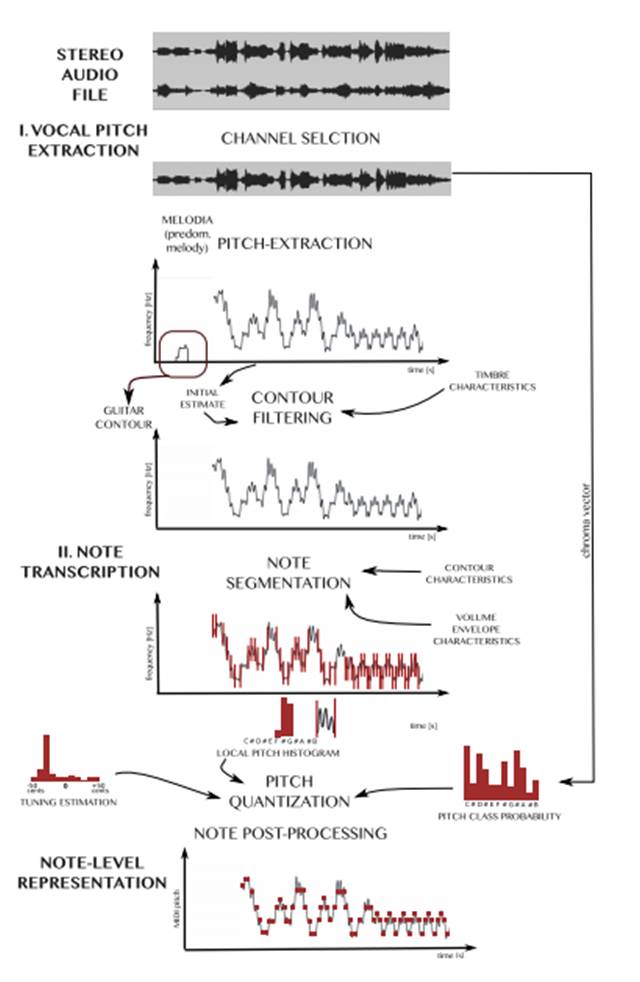El flamenc estrena un nou sistema de transcripció automàtica
Un avenç tecnològic per aquest art, declarat per la UNESCO Patrimoni Cultural Immaterial de la Humanitat el 2010 i elaborat dins el projecte CANTE per Nadine Kroher i Emilia Gómez, membres del Grup de Recerca en Tecnologia Musical.
El flamenc és un art declarat per la UNESCO com a Patrimoni Cultural Immaterial de la Humanitat el 2010. Un gènere els entusiastes del qual han anat en augment arreu del món la qual cosa ha motivat el desenvolupament de mètodes d’estudi i de difusió.

En el flamenc, les veus són l’element central atès que aquest gènere va evolucionar a partir d’una tradició de cant a capella, i s’acompanya de guitarra, percussió (palmellades) i dansa. D’aquí que, quan s’han aplicat les tècniques de recuperació d’informació musical al flamenc, el principal focus ha estat desenvolupar algorismes amb l’objectiu d’analitzar la veu cantada.
La transmissió de les tradicions i les tècniques d’aquest gènere han anat passat de generació en generació. En el flamenc es dona a la improvisació i la tradició oral està escassament documentada. Aleshores els estudis existents es basen en transcripcions manuals que han hagut de fer front a les vicissituds pròpies del gènere, com ara complexes progressions melòdiques, entonació, inexactituds, l’alt grau d’ornamentació i l’acompanyament de la guitarra.

CANTE, una nova tecnologia del cant i de domini públic
En un treball publicat a IEEE/ACM Transactions on Audio, Speech and Language Processing , dut a terme per Nadine Kroher i Emilia Gómez, investigadores del Grup de Recerca en Tecnologia Musical (MTG) del Departament de Tecnologies de la Informació i les Comunicacions (DTIC) de la UPF, es presenta un nou sistema de transcripció automàtica del cant en els enregistraments musicals polifònics, orientat al cas particular del flamenc.
És el projecte CANTE, dins el projecte internacional COFLA (Computational Analisis of Flamenco Music). Com expliquen Kroher i Gómez , “tant el nou sistema generat com les dades que hem fet servir per fer l’avaluació, són de domini públic (programari d’accés obert) i en línia per tal de fomentar la reproductibilitat de la recerca”.
En el seu article, les autores exploren les limitacions de l’estat actual dels sistemes de transcripció del cant i proposen una solució específica per al flamenc. La tecnologia desenvolupada en aquesta recerca permet extreure la melodia predominant tot i l’acompanyament de la guitarra de fons, a la vegada que es proposen un conjunt de funcions de detecció per segmentar el to de la veu cantant en notes discretes que permeten ser anotades i etiquetades. En definitiva, es presenta per primera vegada un mètode més exacte que supera les tècniques de transcripció existents fins ara.
Treball de referència:
Nadine Kroher, Emilia Gómez (2016), “Automatic Transcription of Flamenco Singing From Polyphonic Music Recordings”, IEEE/ACM TRANSACTIONS ON AUDIO, SPEECH, AND LANGUAGE PROCESSING, volum. 24, Núm. 5, pp. 901-913, maig.



